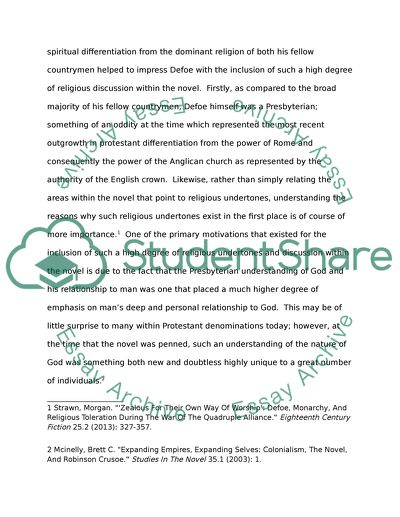Cite this document
(“Religion and its Role within Daniel Defoes Book Robinson Crusoe Essay”, n.d.)
Retrieved from https://studentshare.org/literature/1466683-religion-and-its-role-within-daniel-defoes-book-robinson-crusoe
Retrieved from https://studentshare.org/literature/1466683-religion-and-its-role-within-daniel-defoes-book-robinson-crusoe
(Religion and Its Role Within Daniel Defoes Book Robinson Crusoe Essay)
https://studentshare.org/literature/1466683-religion-and-its-role-within-daniel-defoes-book-robinson-crusoe.
https://studentshare.org/literature/1466683-religion-and-its-role-within-daniel-defoes-book-robinson-crusoe.
“Religion and Its Role Within Daniel Defoes Book Robinson Crusoe Essay”, n.d. https://studentshare.org/literature/1466683-religion-and-its-role-within-daniel-defoes-book-robinson-crusoe.


